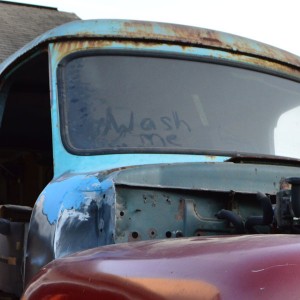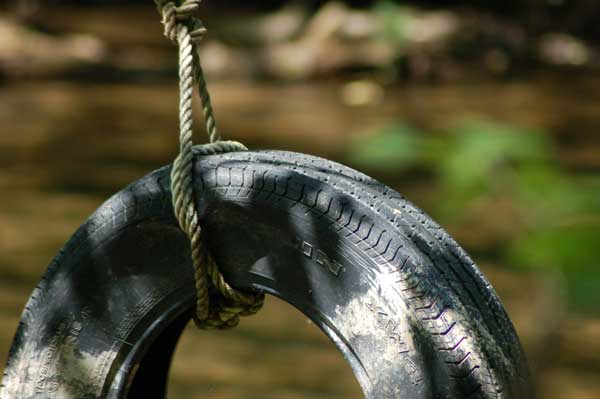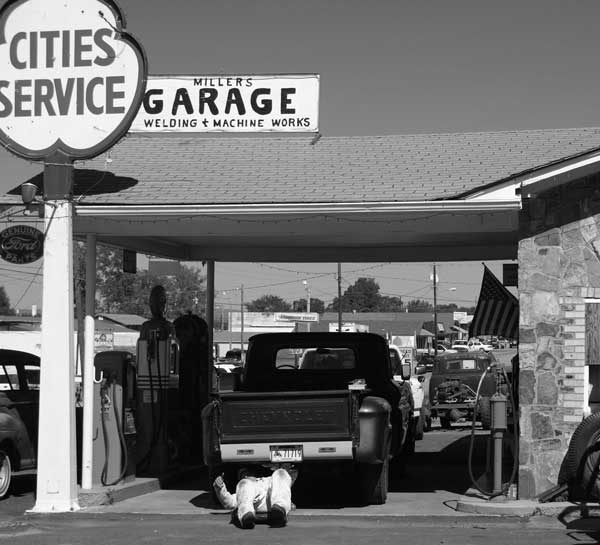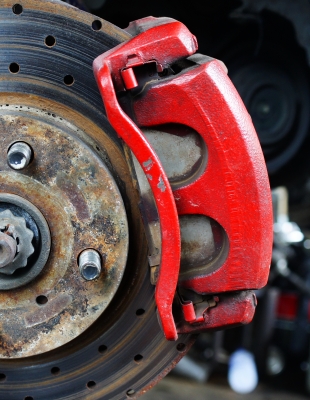Essential Automotive Websites You Have Probably Never Heard Of.
 Just spent some time today driving across the countryside looking for parts for my step-son’s car and I remembered a cool website which helps me search local junkyard (first website on the list). Even I need a reminder sometimes of the cool essential websites out there on the interwebs. So as a placeholder for myself and others, here is a list of some of my favorites…
Just spent some time today driving across the countryside looking for parts for my step-son’s car and I remembered a cool website which helps me search local junkyard (first website on the list). Even I need a reminder sometimes of the cool essential websites out there on the interwebs. So as a placeholder for myself and others, here is a list of some of my favorites…
- Car-Part.com – Need a part for your car and considering a used part from a junkyard? Don’t spend hours on the phone, go to this website to search online and find the exact part you need at the price you want.
- NADAGuides.com – We all know the big automotive price guides, Kelley Blue Book and Edmunds, but NADAGuides.com is my favorite pricing guide with the most accurate pricing information. If you are buying or selling, your first stop should be to this website.
- Jalopnik.com – If you are a car guy, or girl, you know Jalopnik, but for the general public it made this list. If you want to understand the passion that goes in to the automotive enthusiast lifestyle, read Jalopnik. Automotive articles, cool race cars and a good dose of weird automotive stuff will keep you coming back for more.
- TheTruthAboutCars.com – One of the best resources for new car news! Keep up with the news from your favorite car brand and drool over killer concept vehicles without having to attend a crowded auto show in your area.
- gas2.org – Get your green on, with Gas2.org. They cover bio-fuel, electric, and alternative energy topics as they relate to cars, trucks and motorcycles. Well written and balanced view of the issues at hand.
- YouDriveWhat.com – From the people who brought us “People Of Walmart”, YouDriveWhat.com offers a glimpse in to the distorted minds of car owners across the globe. Maybe score some ideas to customize your ride, or just sit back and shake your head!
Posted: 18th April 2014 | Author: Kevin Schappell | Category: General
Why a Clean Car Matters
 For the busy professional, a clean car may be the last thing on your mind. Meetings, family commitments and hitting the gym usually rank way before getting your ride spic and span. But what happens if you get elected to drive to lunch with your boss, or business associates? What impression would your car leave? The old saying “A clean desk is the sign of a sick mind” won’t work when it comes to your car, even if you are a traveling salesman and your car is your office.
For the busy professional, a clean car may be the last thing on your mind. Meetings, family commitments and hitting the gym usually rank way before getting your ride spic and span. But what happens if you get elected to drive to lunch with your boss, or business associates? What impression would your car leave? The old saying “A clean desk is the sign of a sick mind” won’t work when it comes to your car, even if you are a traveling salesman and your car is your office.
Let’s look at some other benefits besides aesthetics…
- Better Gas Mileage: Your car will slip through the air better if it’s clean. Sound crazy, it’s not, it’s science! Check out the Myth Busters getting 2MPG better in their tests of a clean vs. dirty car. YouTube Video Link http://www.youtube.com/watch?v=NNKMOqpfM20
- Longer Lasting Paint: Your paint is more delicate than you think, and keeping it clean will keep it shining for years to come. Modern paints are made from Urethane and consist of a base color coat and a clear top coat that provides the shine. Dirt can become embedded in the top clear coat and cause damage over time. Small metal particles like rail dust and brake pad dust can eventually oxidize (rust) and stain the top layer of paint unless cleaned off regularly.
- No annoying “Wash Me” graffiti phrases across the window from neighbor kids or your own offspring. Case in point, one of my twin daughters thought she would be cute and write on one of my latest projects…
- Clean duds: Nothing sucks more than getting in or out of your car in business attire and rubbing up against a dirty car. In the winter road salt is also very easy to get on pant legs and jackets.
- Less Rust: Speaking of road salt, (or ocean salt spray) it speeds up the oxidation process and will leave your car a rust mess if not cleaned off! Don’t forget the under carriage of your car too, as the road salt and ocean spray gets in every nook and cranny.
Hopefully I don’t have to further convince you of all the benefits of a clean car. Whip out that hose and bucket, or read more in our Car Care Section.
Posted: 16th April 2014 | Author: Kevin Schappell | Category: Body, Car Care
Proper Care And Feeding Of Your Tires.
 Your tires are the critical connection between your car and the road. They affect acceleration, braking and even ride quality. So it’s no wonder that tire care should be a top priority as a car owner. Let’s look at some of the key steps in getting the longest life and safest miles from your tires…
Your tires are the critical connection between your car and the road. They affect acceleration, braking and even ride quality. So it’s no wonder that tire care should be a top priority as a car owner. Let’s look at some of the key steps in getting the longest life and safest miles from your tires…
Tire Care – Proper Inflation
We have all heard it before; properly inflated tires will allow you to achieve the highest MPG. It will also improve the life of your tires and can affect the ride quality as well. Under inflated tires will run hotter due to increased friction. This heat lowers gas mileage, wears the tire from the inside out, and can lead to poor handling and uneven wear on the outside of the tread. Over inflated tires will have a harsh ride, less traction and will wear unevenly at the center of the tread pattern.
What is the proper inflation pressure for your tires? Check inside your door jamb for a manufacturer’s sticker with recommended inflation pressures. Your owners manual will also explain the recommended range of pressures to run. All tires will have a Max. Pressure molded in to the tire, don’t be confused, this is not the pressure you should be running the tires at! Always follow the auto manufacturer’s recommendation for your vehicle to ensure proper tire care.
Rotation
Your car will never be 100% perfectly aligned, thus your tires will never wear evenly. Rotation allows for you to even the wear between front and rear tires over time and get the longest life from your tires. Typically front tires will wear more unevenly than the rears, due to independent front suspension and the fact that the front tires are turning when cornering. Tire rotation every 5-6,000 miles is the norm, and will allow you or your mechanic to inspect the tires and see how they are wearing. Any uneven wear can tip you off to an alignment or tire pressure issue.
What Are Those Green Caps On My Valve Stems?
In the past 10 years, more and more tire installers have switched from filling your tires with air, to nitrogen. Why Nitrogen? Its molecules are larger which leads to less leakage and since Nitrogen is a dry gas, there is no moisture to help corrosion of your wheels from the inside. It also is an inert gas, and contains no oxygen so even less worries about wheel corrosion. It does however still suffer from pressure changes in fall/winter months just like air, so when the winter rolls around, make sure to check your tire pressures.
Posted: 13th April 2014 | Author: Kevin Schappell | Category: Wheels and Tires
Why it matters who fixes your car
 When it comes to the expense of owning a car, maintenance and repairs can rack up a lion’s share of the costs. Who you have doing work on your car or truck can make or break you in the end. Let’s look at the three types of mechanics and where you are likely to get the best service.
When it comes to the expense of owning a car, maintenance and repairs can rack up a lion’s share of the costs. Who you have doing work on your car or truck can make or break you in the end. Let’s look at the three types of mechanics and where you are likely to get the best service.
New Car Dealer Mechanic
You bought a new car and it comes with a warranty, so you naturally take it back to the dealer you bought it from for service. Is that the best way? In most cases, yes! The dealership has the most up-to-date repair information, technical service bulletins and direct connection for warranty service issues.
But what to do when you are not happy about the level of service you are receiving or the additional charges that are racked up on routine services from your mechanic? First step is to complain to the service manager, then his boss, then move it up to the corporate level. You can also look to find another dealership in your area and try them. If you buy a Honda, there is no reason you have to have it serviced by the same dealership you bought it from, try Joe’s Honda in the next town to get the service you expect.
Independent Mechanic
The independent mechanic is going high-tech and many have the same repair information the dealers have, but getting repairs covered under warranty may be a little tougher. But, if you can find an independent mechanic who you trust and has the skills, you will save money over using a dealership for service. Oil changes, brake jobs and even minor engine work can often be done for way less money that the dealership charges.
One thing to consider if your car is under warranty; Save all receipts for proof that preventative maintenance was done at factory intervals. This record keeping is essential when it comes to getting warranty claims paid. It’s also the reason why I recommend dealership service first provide you are happy with their service and pricing. When your service is done at a dealership where the warranty is also held, then the record keeping is handled by the dealer and no worries for you.
Chain L.O.F. Shops (Lube Oil & Filter)
We have all seen the oil change specials advertised at these nationwide chains. While some of these shops are run well by owners who really care about their customers, others are simply franchises with owners who really know nothing about automotive service. Their employees are lower paid, and while that does not always mean poor service, it begs the question… “Would you want the same kid flipping your hamburgers to be changing your oil?”
I see these shops as a last ditch option, when emergency service has to be done, or if you know the owner or mechanic and can trust them to do minor service like oil changes or tire rotation. The price may be right, but the end result may leave you paying in the end.
Posted: 11th April 2014 | Author: Kevin Schappell | Category: General
Brake Service, What You Need To Know
 As a car owner, getting your brakes serviced is a part of ownership, but do you know if you are getting the best service? Let’s start with common reasons you may find yourself at a mechanic for brake service…
As a car owner, getting your brakes serviced is a part of ownership, but do you know if you are getting the best service? Let’s start with common reasons you may find yourself at a mechanic for brake service…
Brake Noises:
Most issues with brakes start with a noise. Most brake pads are designed to make noise when they come close to the end of their useful life. They have a thin metal warning tab which vibrates when it touches the brake rotor. This is entirely normal and serves as a signal to you the driver to get them serviced soon.
Brake dust build-up can also cause squeaking but it’s usually intermittent. If your brake pads have been changed lately and the squeaking has started, I would suspect brake dust.
Grinding Noises:
Grinding noises are usually the brake pad backing material grinding in to the rotor. Brake pads are made of a steel backing plate with friction material being bonded or riveted to it. As the friction material wears away the rivets or the actual backing plate can contact the rotor. Any grinding noise should be cause for an immediate trip to the mechanic.
The Shakes:
You step on the brakes and you are met with a shimmy and a shake from the steering wheel, what to do? The brake rotor can warp over time, and can cause the front wheels to shake slightly. While a minor shake is ok, and can come and go, if it’s too much poor steering and stopping distances can result. Most brake rotors today are made thin enough, that the rotor cannot be turned, or resurfaced, so replacement is usually the way to go.
Now that you have the basics down, how about getting the best deal on a brake job?
Where to go for brake service?
If your car is under warranty and you have a good relationship with them, by all means go there. Independent garages are a good option if you can find a good one you trust, as the costs will be slightly lower. Franchise brake and oil change shops should be your last resort. I always recommend asking friends for recommendations, and of course check online for reviews.
Pad Choices?
Brake pads are all about the friction material, the harder they are, the longer they last. But with anything in life, there is a tradeoff. Harder brake pads will wear down the rotor faster and may produce more heat making warping a possibility. Most places will advertise lifetime brake jobs, and install hard metallic pads to prolong the life at the expense of your rotors. I recommend going with a name brand organic brake pad or a semi-metallic. You may end up changing brake pads more, but will have to replace rotors less frequently as well.
What to look for in a brake job?
Always insist on an estimate before work is done, ask to see the worn parts before any work is done and if you are not able to see the parts, ask that they save them for you to view when picking up your car. Never be afraid to ask questions, a good shop appreciates an educated customer. Also ask that your wheels be torqued with a torque wrench and not an impact wrench and “torque sticks” which may or may not provide uniform torque if not used correctly. Uneven torque can lead to warped rotors which will just have you back at the shop spending more money.
Posted: 9th April 2014 | Author: Kevin Schappell | Category: Brakes